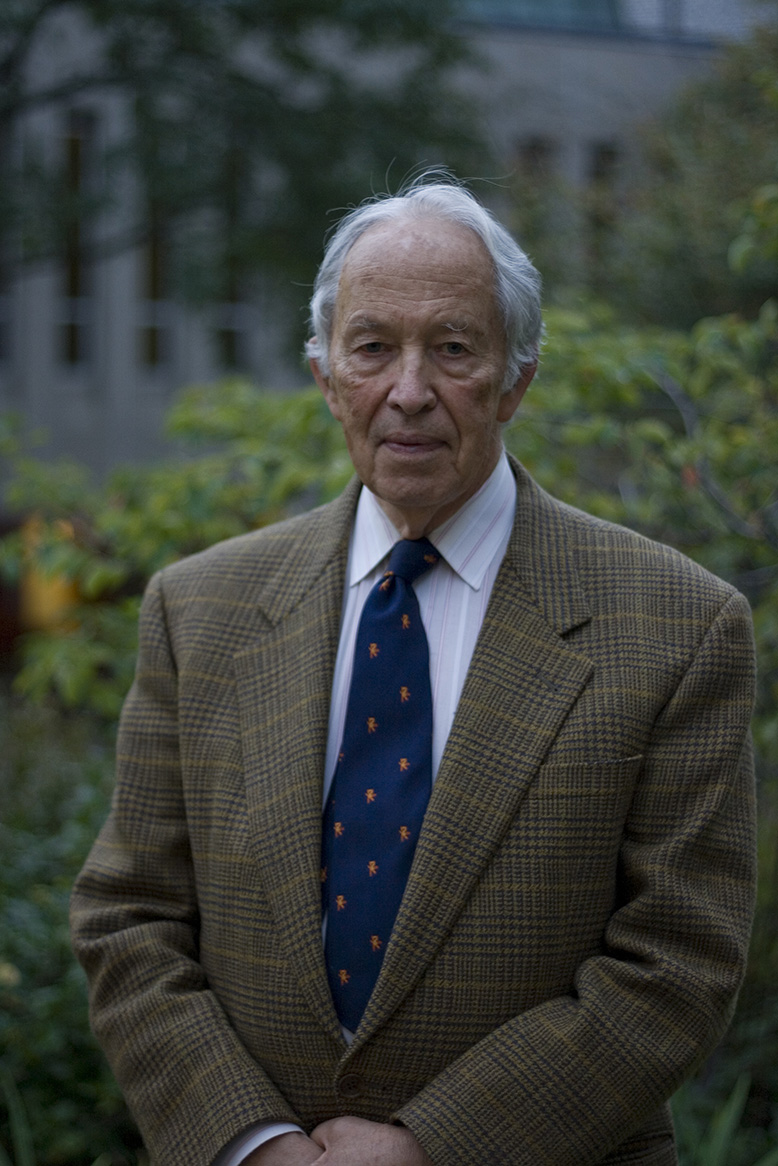We are proud to have Barrie’s name on our organization – something which, in typical fashion, he did not want. His name stands for solid ethics and for truly making a difference in the world.
He is internationally recognized as a pioneer in palliative care; notably through his development of the first pediatric palliative care guidelines while treating children dying from cancer in London, Ontario. Additionally, his work in the formulation of the serum for treating Rh factor in pregnancies has saved countless children.
L.L. (Barrie) deVeber was born in Toronto in 1929 to a respected medical family and graduated from the University of Toronto Medical School in 1953. In a career spanning more than half a century, Dr. deVeber served as medical researcher, professor, clinician, and community volunteer around the world. He continually challenged the status quo and fought for the importance of respecting all human life.
“I have had the privilege to provide medical treatment and care for hundreds of children over a span of more than 30 years. Each of my patients was a unique individual who deserved the best possible treatment and was cared for with dignity and respect.”
Dr. deVeber explained in a 2003 interview when asked about his work.
To learn more about Dr. deVeber’s impact both personally and professionally, click the button below to watch these videos from our 2019 Annual General Meeting.
Some of Dr. Barrie deVeber’s most notable accomplishments are listed below:
Dr. deVeber helped develop a method using amniocentesis and intrauterine transfusion to treat Rh haemolytic disease, which was a leading cause of fetal and newborn death. He also administered the first dose of Rh immune globulin in Canada. Due to these pioneering efforts, the disease is no longer a major health concern.
Dr. deVeber was a Professor of Ethics and Law for Medical Students at the University of Western Ontario for nearly twenty years (1972-1991). He was influential in developing a curriculum to train medical students in palliative care. During this time, Dr. deVeber was also the Director of Paediatric Haematology and Oncology at Children’s Hospital, Victoria Hospital in London.
Dr. deVeber co-founded Camp Trillium, the first camp in Canada to offer support and recreational opportunities for childhood cancer patients and their families. Barrie was also a founding member of the Ronald McDonald House London, Sunshine Foundation for Canada for seriously ill children, and the Childhood Cancer Research Association of Southwestern Ontario.
After retiring, Dr. deVeber ran a paediatric cancer unit in Riyadh, Saudia Arabia. He later travelled to Nairobi, Kenya where he ran the Paediatric Cancer Program at Kenyatta National Hospital.
Dr. L.L Barrie deVeber and Jean Echlin presented “Proposal for Integrated Palliative Care” to the Canadian Parliament. It highlighted the need for earlier patient referrals to palliative care specialists and for the expanded education of all health care providers in palliative medical practices.
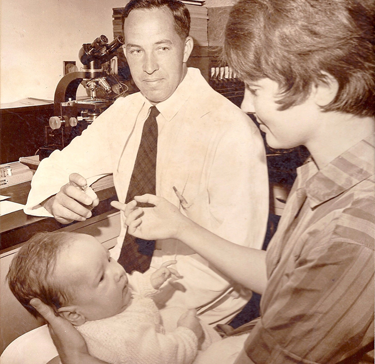
deVeber during the Rh vaccine study, 1968
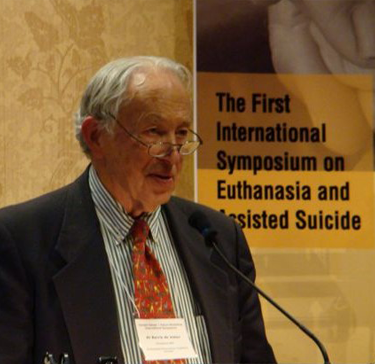
deVeber, 2007
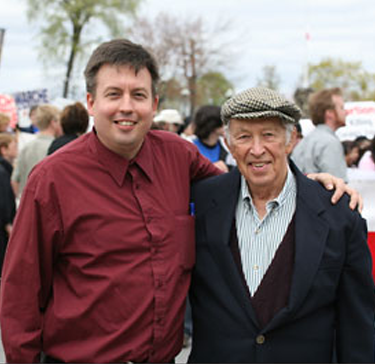
deVeber and Alex Schdenberg, Euthanasia Prevention Coalition
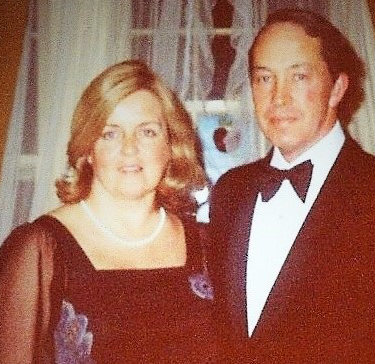
deVeber and wife Iola, 1970s


